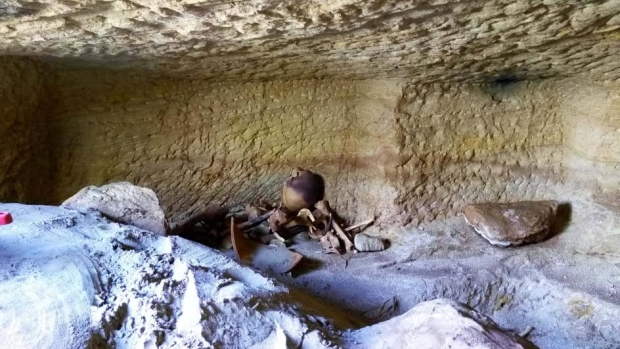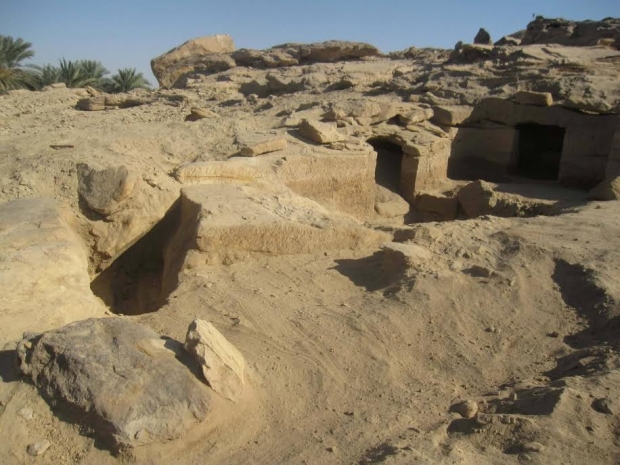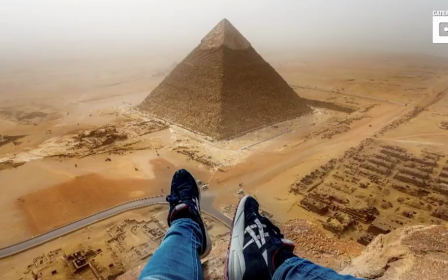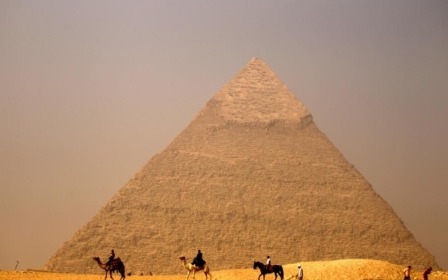Egypt finds ancient burial site of crocodiles, infants and scorpions
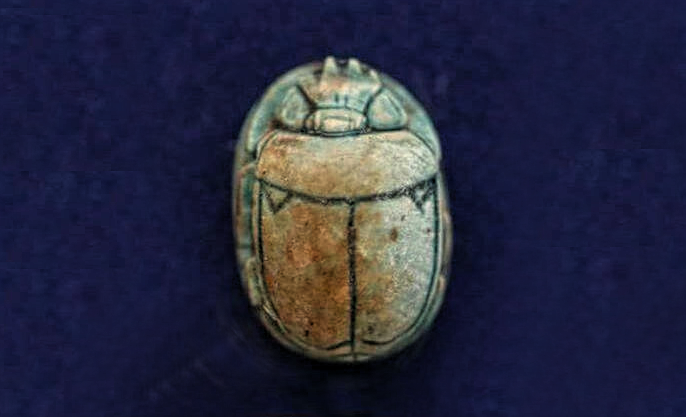
Archaeologists have unearthed a dozen burial sites near the southern city of Aswan that date back almost 3,500 years to the New Kingdom era of ancient Egypt, the Antiquities Ministry said on Wednesday.
The graves were discovered 65 km north of Aswan, and would have been used during the reigns of pharaohs Thutmose III and Amenhotep II.
The excavation site was in a quarry where the same researchers also uncovered ancient sandstone sculptures in 2015.
It is hoped the newly-discovered burial sites will help historians better understand ancient Egyptian healthcare and give a boost to Egypt's struggling tourism industry, which has been beset by political upheaval and militant attacks since the unseating of autocrat Hosni Mubarak in 2011.
The graves are carved into rock faces, and each contain one or two burial chambers. It is thought the people buried at the site were members of the upper middle-class, rather than pharoahs.
'Its tail was orientated towards the south while its head, which was missing, would have been in the north'
- John Ward, associate dig director
So far researchers have opened up two of the graves, finding inside the intact remains of infants and a cat.
READ: Egyptian tomb dig unearths millennia-old mummy
A mysterious entire crocodile skeleton was also found in the middle of a courtyard, as well as totems and scorpions.
"Its tail was orientated towards the south while its head, which was missing, would have been in the north," associate dig director John Ward said.
Maria Nilsson, the head of the expedition, said that the human remains showed malnutrition and broken bones that were the result of heavy labour.
Site previously plundered
The investigation managed to discover the intact graves at a site that had previously been plundered by grave robbers.
Nilsson said she struggled with a sense of "frustration" about what might have been discovered, had it not been for looters who overran the site, particularly prior to the 1990s when regulations were tightened.
Many of the graves that were previously looted have since been flooded by the waters of the Nile , leaving them "a mess of skeletons, ceramics, sand and junk," Nilsson said.
Further studies are expected to reveal further information about the social rankings of those buried there, and exactly what purpose the uncovered cemeteries served.
New MEE newsletter: Jerusalem Dispatch
Sign up to get the latest insights and analysis on Israel-Palestine, alongside Turkey Unpacked and other MEE newsletters
Middle East Eye delivers independent and unrivalled coverage and analysis of the Middle East, North Africa and beyond. To learn more about republishing this content and the associated fees, please fill out this form. More about MEE can be found here.


